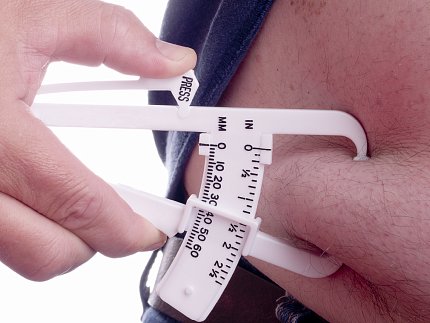Parental Obesity Linked to Delays in Child Development, Study Suggests

Children of obese parents may be at risk for developmental delays, according to a study by researchers at NIH. The investigators found that children of obese mothers were more likely to fail tests of fine motor skill—the ability to control movement of small muscles, such as those in the fingers and hands. Children of obese fathers were more likely to fail measures of social competence and those born to extremely obese couples also were more likely to fail tests of problem-solving ability.
The study, which appeared in Pediatrics, was conducted by scientists at NICHD.
“The previous U.S. studies in this area have focused on the mothers’ pre- and post-pregnancy weight,” said the study’s first author, Dr. Edwina Yeung, an investigator in NICHD’s Division of Intramural Population Health Research. “Our study is one of the few that also includes information about fathers, and our results suggest that dad’s weight also has significant influence on child development.”
Yeung and her coauthors cited research indicating that about 1 in 5 pregnant women in the United States is overweight or obese.
More than 5,000 women enrolled in the study roughly 4 months after giving birth between 2008 and 2010.
Compared to children of normal weight mothers, children of obese mothers were nearly 70 percent more likely to have failed the test indicator on fine motor skill by age 3. Children of obese fathers were 75 percent more likely to fail the test’s personal-social domain—an indicator of how well they were able to relate to and interact with others by age 3. Children with two obese parents were nearly three times more likely to fail the test’s problem-solving section by age 3.
It is not known why parental obesity might increase children’s risk for developmental delay.
If the link between parental obesity and developmental delays is confirmed, the authors wrote, physicians may need to take parental weight into account when screening young children for delays and early interventional services.
